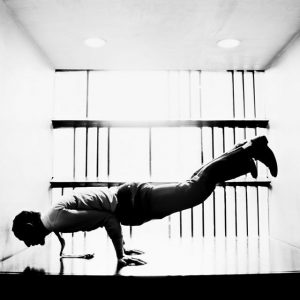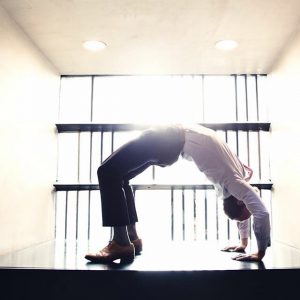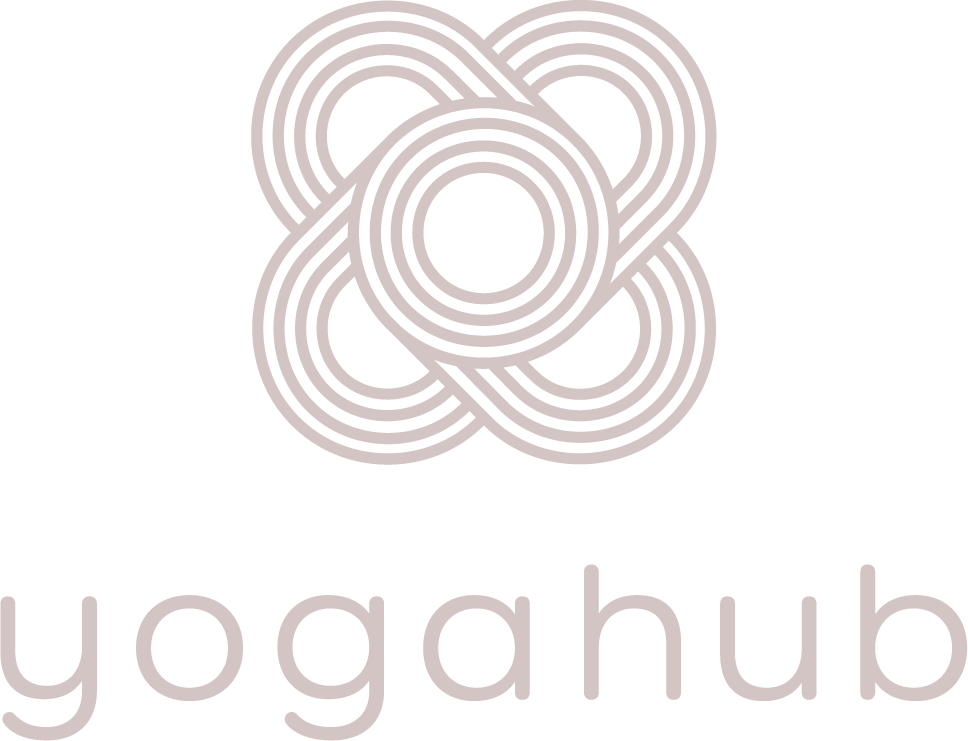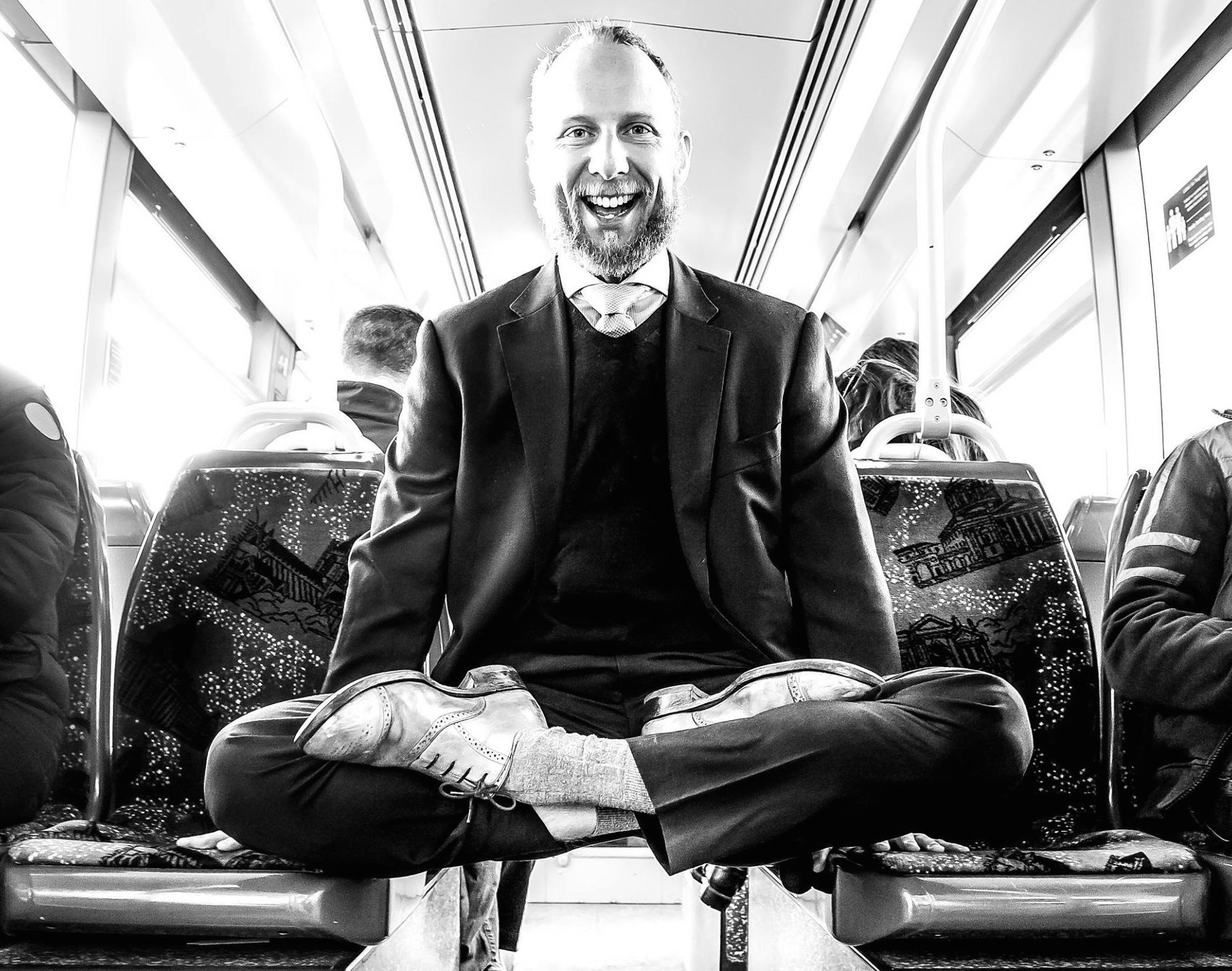All of us at YogaHub are very excited to announce the new YogaHub Teacher Spotlights on our blog. Every 3-4 weeks, we’ll tell the story of one of our beautiful instructors. Enjoy!
Chris Flack tells us about his yoga journey by breaking down his experience with meditation, and offers helpful meditation tips!
I meditate 24×7. I, am a legend.
…I don’t and, I’m not. Although when I started meditating I’m pretty sure that was my goal.
On a yoga retreat ten years ago we did a walking meditation and, I won. I’d taken in the surroundings, thought about what I was going to have for dinner and what yoga pose I could photograph to look cool on my new Facebook profile. I was the fastest to the halfway point and was delighted with myself. At that point the instructor subtly told the group that the idea was to be your slowest self. On the way back I was in last place the whole way. I remember thinking to myself, “I am a legend”.
Five years later, pushing myself as hard as I could for success in the corporate world I ended up burnt-out and was diagnosed with depression.
Today I meditate twice daily. Am I stress free? No. But I have a very busy life and this is a key component to keep me strong. My focus is more acute, my sleep deeper, and I do everything slower. That doesn’t mean I don’t get things done, but I observe first then react. A simple example would be being cut up on my bike when cycling to work (usually other cyclists with headphones). Previously I might have immediately shouted “**** off you ****** **** arsehole”, whereas now, I’d pause and maybe quietly mumble “arsehole” (no one is perfect). The benefits, however, only really came when I started doing it regularly, and yet one of the obstacles to meditation for most is finding time. However, this article will hopefully bring some light to how to remove such barriers.
Why is this relevant to you? Being stressed is now normal. The pace of modern life means most of us are conditioned to be on auto pilot and in a fog of thoughts 24×7. It’s as if we are on a constant adrenaline drip and whilst that helps us survive challenges, being ‘always on’ is not sustainable. As mindfulness expert Dr. Jon Kabat-Zinn describes: “We have Stone Age minds in a digital world,”.
If we think of this constant noise creating a habit of distraction, meditation is one solution to bring us back to the present moment. Each time we do it we are practicing a mental workout to strengthen the habit of focus.

Meditation is often sold as bells and smells which does not appeal to everyone. Luckily this is changing (although I personally love the smells and bells!) and here’s why:
1) The evolution of mindfulness means meditation is now scientifically proven.
Just to get the definitions out the way here’s mine (some people might not agree with these but they’re how I differentiate the two):
Meditation is a formal practice (there are many techniques which I’ll go on to in my next post “I’m a meditation flirt”), to focus on the present moment with no judgement ie. the photo of the person sitting with their eyes closed. For example, Transcendental Meditation (focus on a specific mantra in a formal practice).
Mindfulness is an informal practice to focus on the present moment with no judgement. ie. something we can do in everything we do. Jon Kabat-Zinn took this mainstream when he developed MBSR (Mindfulness Based Stress Reduction) taking this ancient word for awareness, building a scientific case for huge wellbeing benefits and making it something anyone can do by delivering it in a secular manner. For example, mindful walking (ie. practising a regular activity but just doing that one thing (single tasking), no listening to music or checking your snapstreak).
2) Science (neuroplasticity) has proven we can improve our brain fitness at any age.
And why is this important? Physical exercise only really took off when scientists started to show the benefits. The big difference there was that it gives more instant gratification towards goals such as tight buns and a six pack.
Celebrity endorsement and slick products like Headspace and Buddhify go some way to make it sexy but unlike physical health, you cannot show off your brain health in a bikini so it will be a slow revolution 🙂
3) Being ‘always on’ creates a habit of distraction and mediation does the opposite. The majority of us struggle in the current attention economy and yet those distractions are only going to get stronger. I’m slightly bias here as I run UnPlug, a people development company that runs corporate programmes to help people develop focus in a distracted world. UnPlug programmes deliver behaviour change and mindful practice is a small component of what we do but a very important part.
I am confident that (3) will mean meditation and mindfulness become mainstream as it will not just be a technique to help us with improved wellbeing but an exercise to use to maintain focus in an ever distracting world.

So here are my meditation tips (note: I am not an expert. I’m someone went through burnout, was diagnosed with depression and studied meditation as one of the methods to maintain good brain health and it’s worked):
• Meditation is not a magic pill, it does not cure depression, turn you into a hippy or make Trump go away. If you have a problem you need to deal with, meditation will, however, help as a coping mechanism. As the ABC anchorman Dan Harris wrote it makes him “10% Happier”. For me, I see more focus on positive and less on negative in my life. Nothing dramatic but over time that shift is fundamental.
• Meditation is easy to do but hard to practice. When starting mediation, we end up in a vicious circle. We try to block out thoughts and all of a sudden develop anxiety that we cannot meditate. If we didn’t have thoughts it would be like doing bicep curls without weights. Think of it instead of not giving the thoughts your attention. When we fall asleep, we often have a mind full of thoughts and the less attention we give to those thoughts the more relaxed we become. The difference is that we meditate with a straight spine (so our nervous system is active and, ideally (!) we don’t fall asleep).
• With the ‘always on’ culture this is becoming harder. However, what we have to remember is that the best things we’ve learnt have come through practice.
• You probably don’t have time to meditate. Once you meditate for a while you’ll actually have more time as your life will have more focus. Even if it’s just two minutes a day, do it regularly rather than binging. Practice is hard but trick your system by starting small.
• Meditation can cost nothing to thousands of dollars. However, it’s worth considering this is your brain health. We spend thousands on our external appearance and rarely consider our brain health, often reaching for pills when we are stressed. The most common anti anxiety medication on the market offers men the lovely side effect of impotence. If being depressed wasn’t bad enough.
• It’s important to find what works for you. Habits only form when we like something. So if tibetan bells or silent retreats make you cringe consider a non-traditional meditation such as colouring in books or calligraphy (the key is to do something you enjoy and single task). Or if your mind is really busy try a more active meditation such as walking or dancing. It’s all about finding an anchor for your thoughts that works for you and your current situation. I used to meditate on the way to work when I lived in Delhi, my focus was on the content stream of noise. My mother reads her prayers every morning. She’s just doing that one thing (there’s no Candy Crush in one hand whilst listening to Radio 2 and reading her prayers). Also consider the words used. If you’re sick of seeing ‘Mindfulness’ or ‘Meditation’ in your newsfeed then take a leaf out of global company Mondelez’s book. Julia Freeman developed a programme that never uses those words, instead it uses the following words and it’s been a huge success.
Meditation is one thing you can do to improve your brain health/fitness. Sleep, nutrition, relationships and physical exercise are just as important and I’ll write about how I maintain overall brain fitness in a future post.
Even if its’ only two minutes. Do it every day. Change is a process not an event so try to make it a habit but make sure you start small.
Thanks for reading. If you enjoyed this article I’d appreciate a share. 🙏
Chris is CEO and Founder of UnPlug. Meditation is one of his personal passions. UnPlug helps people manage digital distractions leading to improved focus. The UnPlug team includes psychologists, tech and neuroscience experts. Mindful practice is a small component of UnPlug’s behavioural change programmes.



